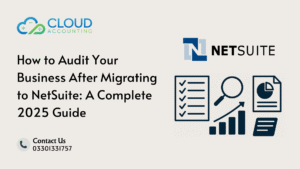If you’re running a small business, chances are you’ve got a lot on your plate and bookkeeping is often the first thing to fall behind. But disorganised accounts don’t just create stress; they can cause serious problems when it comes to cash flow, compliance, and decision-making.
Many business owners don’t realise they need a bookkeeping clean up for small business until it’s too late. Late tax filings, inaccurate reports, and endless hours chasing receipts are just a few red flags. Cleaning up your books isn’t just about tidying up it’s about protecting your business and setting it up for growth.
In this post, we’ll walk through the top 10 warning signs that your business needs a bookkeeping clean up. You’ll also get real-world examples and a handy checklist to help you decide if it’s time to take action.
1. You Haven’t Reconciled Your Bank Accounts in Months
One of the most common signs that you need a bookkeeping clean up for small business is unreconciled bank transactions. If your books don’t match your actual bank balance, you’re flying blind.
Real-world example:
A café owner thinks they’ve made a profit, but their Xero shows £3,000 more than what’s in the bank. Turns out, deposits were coded incorrectly and refunds weren’t entered. A full bank reconciliation exposed the discrepancy.
Quick checklist:
- Are all bank and credit card accounts reconciled monthly?
- Do balances in your books match your actual bank statements?
- Are you seeing “uncategorised” transactions or unreconciled items?
If not, your business is already dealing with messy books—and they won’t fix themselves.
2. Your Financial Reports Don’t Make Sense
Have you looked at your P&L lately and thought, “This can’t be right”? That’s a major red flag. When your numbers don’t align with reality, it’s time for a bookkeeping clean up for small business.
Real-world example:
An ecommerce seller saw £50,000 listed under “Miscellaneous Expenses.” It turned out their monthly ad spend hadn’t been coded to the correct chart of accounts for six months.
Quick checklist:
- Are your profit and loss reports showing odd spikes or missing data?
- Are major expenses being lumped together under vague categories?
- Do you trust the reports you’re using to make business decisions?
When reports aren’t reliable, your books are a liability—not an asset.
3. You’re Always Filing Late or Amending Tax Returns
Falling behind on tax filings is more than just stressful it can be expensive. If you’re regularly submitting late VAT returns or amending previous filings, it’s a strong sign your books are in disarray and in need of a bookkeeping clean up for small business.
Real-world example:
A contractor missed their VAT deadline three times in a year due to incomplete bookkeeping. HMRC issued penalties totalling over £900. A clean-up and monthly bookkeeping plan fixed the issue going forward.
Quick checklist:
- Are you relying on estimates at tax time?
- Have you missed filing deadlines in the past 12 months?
- Are you constantly revising past submissions due to errors?
This is more than just messy books—it’s putting your business at risk
4. You Have No Idea What You Owe (or Are Owed)
If you’re unsure who still owes you money—or how much you need to pay suppliers—it’s time to pause and evaluate your bookkeeping health.
Real-world example:
A plumbing company had £12,000 in unpaid customer invoices but didn’t realise it due to inconsistent record-keeping. After a bookkeeping clean up for small business, they recovered 85% through proper follow-ups and reminders.
Quick checklist:
- Are accounts receivable and payable up to date?
- Are invoices sitting unpaid for 60+ days?
- Are supplier bills getting missed?
Letting debtors and creditors go unmanaged is a classic symptom of messy books.
5. You Rely on Gut Instinct Instead of Financial Data
A thriving business doesn’t run on hunches it runs on numbers. If you’re unsure about your cash position or upcoming liabilities, your books are likely outdated.
Real-world example:
A creative agency made a hiring decision based on a cash flow estimate. Unfortunately, their P&L wasn’t current. A bookkeeping clean up for small business revealed they were operating at a monthly deficit.
Look for:
- Frequent cash shortages despite high sales
- Guesswork during budgeting or investment decisions
- Delays in issuing payslips or covering expenses
Reliable data starts with accurate books.
6. Your Accountant Spends More Time Fixing Than Advising
A trusted accountant should guide growth—not dig through cluttered ledgers every tax season. If they’re always chasing missing data or reclassifying transactions, your bookkeeping needs attention.
Real-world example:
One retailer’s accountant spent 20 hours just fixing miscoded entries from the previous year. After a full bookkeeping clean up for small business, future year-end filings took half the time and cost 30% less.
Red flags:
- Frequent questions from your accountant about missing data
- High accounting bills for “review” work
- Year-end surprises from inconsistent entries
7. You’ve Outgrown Your DIY Bookkeeping System
It’s common for new business owners to start with spreadsheets or apps like Wave. But as your business grows, so does the complexity.
Real-world example:
A freelance designer had over 200 transactions per month across 4 platforms none synced correctly. They needed a professional bookkeeping clean up for small business and a move to Xero with proper integrations.
Warning signs:
- Manual entry across multiple systems
- No clear audit trail for income and expenses
- Sales platforms not syncing with your accounting software
Growth demands clean, scalable systems.
8. Payroll Errors Keep Popping Up
Payroll is sensitive. Even minor errors can lead to tax problems or unhappy staff. If you’re consistently making corrections or missing pension filings, it’s a sign your records are off.
Real-world example:
A digital agency was flagged by HMRC for under-reported NICs due to duplicate payroll journals. A bookkeeping clean up for small business corrected the past and set up a reliable process moving forward.
Check:
- Are payroll journals correctly posted and matched with bank transactions?
- Are pension submissions up to date?
- Are employee payments matching records?
9. You Struggle to Prepare for Funding or Loans
Clean books build credibility. Lenders and investors will scrutinise your financials—if they’re disorganised, you’ll be seen as high risk.
Real-world example:
A wholesale distributor applied for a growth loan. Their profit reports looked inflated due to uncleared refunds. A fast bookkeeping clean up for small business helped secure £30,000 in funding.
Before applying for funding:
- Check your P&L and balance sheet for accuracy
- Ensure liabilities and assets are current
- Verify tax and VAT filings are complete
Messy books can cost you far more than just time they can stall growth.
10. You Avoid Looking at Your Accounts Altogether
If you dread logging into your accounting system or reviewing your books, it’s usually a sign they’re not in good shape. Avoidance leads to bigger issues.
Real-world example:
A small import business hadn’t reviewed their accounts in 6 months. After a full bookkeeping clean up for small business, they discovered over £5,000 in missed VAT claims and a profit margin lower than expected.
Ask yourself:
- Do you feel anxious or confused when reviewing your books?
- Is your dashboard full of outdated or unexplained data?
- Are you relying on outdated reports?
Facing the facts no matter how messy is the first step to fixing them
Catch-Up Bookkeeping Checklist for Small Business Owners
Here’s a simple checklist to help you determine if your business needs a bookkeeping clean up for small business:
- All bank and credit card accounts are reconciled monthly
- Sales platforms are correctly integrated with your accounting software
- Outstanding invoices and bills are tracked and followed up
- VAT and payroll filings are up to date and accurate
- Transactions are categorised into the correct chart of accounts
- Your reports make sense and reflect reality
- You feel confident reviewing your financials at any time
If you couldn’t check most of these, it’s time to take action and possibly seek expert help.
Need a Bookkeeping Clean Up for Small Business? Let’s Fix It Right.
Messy books don’t fix themselves and the longer they sit, the worse the consequences become. Whether you’re months behind on reconciliations or just unsure if your reports are trustworthy, a bookkeeping clean up for small business is the smart, strategic move.
At Cloud Accounting, we help small business owners across the UK clean up their books, regain control, and move forward with confidence. Our Xero-certified team reviews every entry, uncovers hidden errors, and sets up lasting systems to keep things clean. Book a free discovery call now and get your personalised bookkeeping clean up for small business quote.








